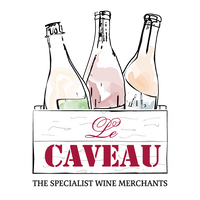On the nose, it reveals peppery raspberries and forest-ey meaty aromas. The palate is equally intriguing. It’s lively, with fresh acidity, and an ever so slight presence of tannin.
Feints Red is a blend of Arneis (45%), Dolcetto (25%), Barbera and Nebbiolo from Fox Hill Vineyard in Mendocino County, California. All the grapes were picked the same day and co-fermented together. Full carbonic maceration lasted about 10 days. Traditional, foot-trodden maceration lasted about 2 days. The grapes were basket pressed and then continued fermentation without temperature control. Native yeasts were used. Malolactic fermentation occurred. The wine spent seven months on its lees with one racking. Feints was bottled unfined and unfiltered with only 10ppm SO2 added during late fermentation.
RUTH LEWANDOWSKI WINES, Evan LewandowskiOrganic
Evan Lewandowski lives in Utah where he is planting vines.
‘Why “Natural Wine”? “Natural wine is the true expression of the land by way of a grapevine. I’m not interested in debating exactly WHAT natural wine is. People get all up tight about numbers and definitions in the wine world. It tends to be easier explaining exactly what natural wine is not.
It is not industrially farmed with the use of synthetic pesticides and herbicides and fungicides and fertilizers. It isn’t an industrially produced beverage product through employing unnecessary amounts of sulphur, without cultured ‘designer’ yeast and/or bacteria strains, and the myriad of other techno cellar wizardry products we have at our fingertips these days. No acid additions, no sugar, no water, no tannin, no filtration for filtration’s sake, etc etc. Insomuch as it is possible, I strive to produce wine made of SOLELY grape juice. That is, to me, the true expression of the land via the grapevine.”
I fell in love with this place while attending the University of Utah. Like many of us, I came to ski and found my home. Along the way I also fell in love with wine and was struck with the harebrained idea that what could keep me in Utah for the rest of my life was to actually plant vineyards here. That kooky notion has since taken me all over the globe, just trying to figure out if it even made sense, if it was even remotely possible.
During the spring of 2012, while working in Alsace, I decided I could no longer dream but I had to put it into motion. I moved back to Utah, set up shop, and I'm really trying not to look back.
The soils here are varied and pretty amazing...pebbly, cobbly, rocky...sandstone, limestone, shale! Many places are absolutely perfect for the cultivation of extremely high quality winegrapes. The same can be said for our climate here in Utah (political climate aside...). I'm one million percent certain that world-class wine will one day be grown here. It's a matter of time. If I don't do it, someone else will.’ Evan




